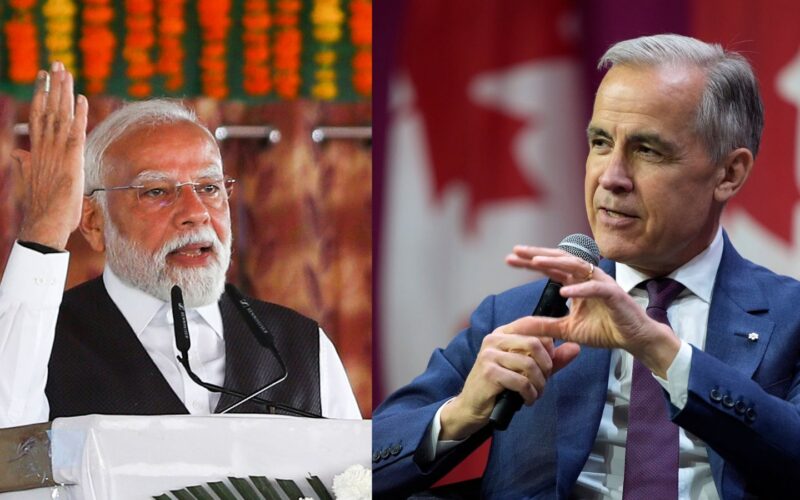Ottawa (Rajeev Sharma): Canadian Prime Minister Mark Carney is under intense fire, not only from the opposition but also from within his own Liberal Party, for inviting Indian Prime Minister Narendra Modi to attend the upcoming G7 Summit in Kananaskis, Alberta, amid ongoing concerns over India’s alleged involvement in orchestrating violence on Canadian soil.
The controversy reignited after the World Sikh Organization of Canada (WSO) issued a strong condemnation of the invitation, stating that the timing and optics of the announcement have caused “outrage and pain” across Sikh communities in Canada.
The anger centers around the 2023 assassination of Sikh separatist Hardeep Singh Nijjar, who was gunned down in Surrey, BC. In a historic statement made in Parliament last fall, then-Prime Minister Justin Trudeau said Canada had “credible evidence” linking the Indian government to the murder, prompting a diplomatic rift between Ottawa and New Delhi.
Now, with PM Narendra Modi invited to one of the world’s most influential summits, criticism has poured in from Liberal MP Sukh Dhaliwal, who represents Surrey-Newton, a riding with a large Sikh population and the former home of Nijjar.
“Dozens of my constituents have reached out in outrage,” Dhaliwal said. “It sends the wrong message… that anyone can come into Canada, kill Canadians, and simply walk away.”
Dhaliwal emphasized the need for accountability and cooperation from India, urging the Modi government to engage transparently with Canadian authorities over the Hardeep Singh Nijjar’s murder case.
Despite the uproar, Prime Minister Carney defended the invitation, saying India’s global economic and geopolitical role makes its presence essential for G7 discussions.
“There are certain countries that should be at the table,” Carney said, noting that India has agreed to continue law enforcement dialogue with Canada.
India, the world’s fifth-largest economy, has attended the last six consecutive G7 summits as an invited guest. Foreign policy analysts argue that Canada’s growing interest in recalibrating its relationships in the Indo-Pacific region, and reducing reliance on the US, may also be influencing the decision.
Still, many critics argue that welcoming PM Narendra Modi to Canada without addressing the allegations sends a dangerous signal of indifference to justice and human rights.
As the G7 Summit approaches, tensions remain high both in diplomatic corridors and within Canadian communities seeking closure, accountability, and assurance that Canadian sovereignty will not be compromised in the name of realpolitik.

